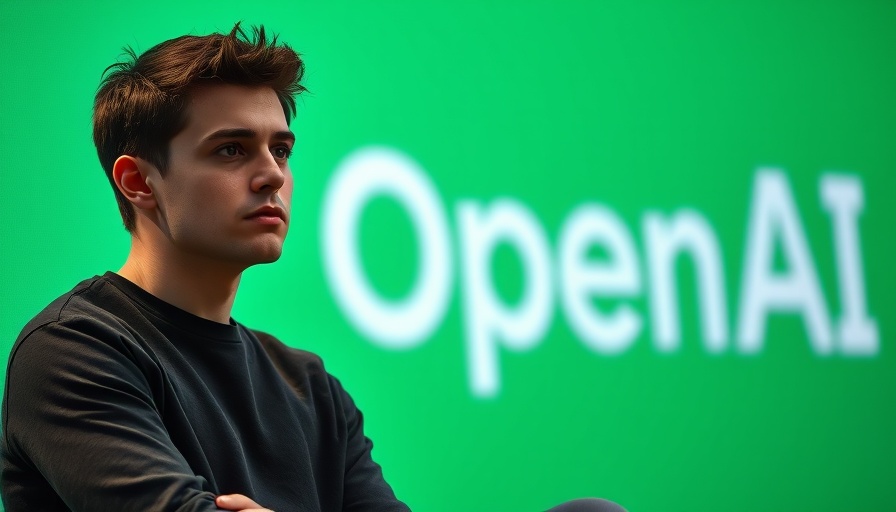
The Ongoing Clash Between OpenAI and Elon Musk
The conflict between OpenAI and its co-founder, Elon Musk, has intensified as both parties prepare for a legal showdown. In a recent court filing, OpenAI's attorneys have not only responded to Musk’s accusations with a counter-suit but also called for a halt to what they describe as unlawful and unfair actions from Musk. The ongoing dispute has attracted significant media attention and raises critical questions about the future of AI governance and the role of its founders in shaping that future.
Understanding OpenAI's Position
OpenAI, originally founded as a nonprofit, transitioned to a capped-profit entity in 2019. This shift aimed at ensuring that the organization could attract sufficient capital to pursue its ambitious goals in AI development while still prioritizing its mission to benefit humanity. In contrast, Musk's allegations target OpenAI's commitment to its altruistic mission, accusing the organization of abandoning its foundational principles for profit. The essence of the suit reflects a struggle over the narrative of AI ownership and responsibility.
What The Counter-Suit Means for AI Development
In their counter-suit, OpenAI maintains that Musk's actions could jeopardize the organization's operations and its ability to serve the public interest. They assert that Musk’s relentless attacks, including a deceptive takeover bid, threaten not only their organizational integrity but also the broader AI landscape. The implications of this legal battle extend beyond OpenAI, possibly influencing public perception and regulatory approaches to AI technologies.
The Financial Stakes are High
OpenAI's counter-suit comes at a precarious time as the organization faces deadlines related to its for-profit conversion. Reports indicate that if OpenAI does not complete this transition by the end of 2025, they may lose crucial funding. This financial urgency underlies the stakes for OpenAI in this dispute. As various stakeholders, including nonprofits and labor groups, line up against the for-profit shift, the question of funding becomes increasingly critical, setting the stage for broader implications regarding AI's economic frameworks.
The Wider Impact of Musk's Disruptions
Musk's involvement in this legal drama goes beyond personal grievances; it intertwines with larger discussions surrounding AI ethics, safety, and governance. The disruptions have spurred advocacy groups to petition for regulatory scrutiny of OpenAI’s evolution towards a profit-driven model. This growing public interest illustrates a division within the tech community regarding the imperatives of AI, charity, and capitalism, and whether innovation should be prioritized over ethical considerations.
Future Predictions: What's Next?
Looking ahead, the upcoming jury trial in spring 2026 will likely serve as a defining moment for both OpenAI and the broader tech industry. As the lawsuits play out in court and within the public arena, various stakeholders will be closely watching for signs of how such legal battles may shape the future of emerging tech sectors. Will courts uphold the notion that AI should remain bound by ethical considerations, or will the trend lean toward unabashed profit motives?
Counterarguments: Musk's Perspective
While OpenAI has made strong claims against Musk, the narrative complicates when examining Musk's perspective. He has argued that by becoming a profit-driven entity, OpenAI is diverging from its original goals of pursuing AI development that serves all of humanity. His advocates suggest that this war of words and legal maneuvers reflects genuine concerns about AI safety and its implications for society. This perspective poses essential questions about corporate responsibilities versus personal ambitions in advancing technology.
Conclusion: The Call for Thoughtfulness in Tech Innovation
The battle between OpenAI and Elon Musk illustrates the complexities surrounding technological advancements and ethical responsibilities. As both sides prepare for a prolonged legal engagement, the entire tech community stands to learn valuable lessons about governance, funding, and the purposes of innovation. It is crucial for tech companies and leaders to engage thoughtfully with the ethical implications of their innovations. Stakeholders can advocate for policies that encourage transparency and accountability in the tech space—making it essential to pursue a discourse that considers both profits and the greater good.
 Add Row
Add Row  Add
Add 



Write A Comment